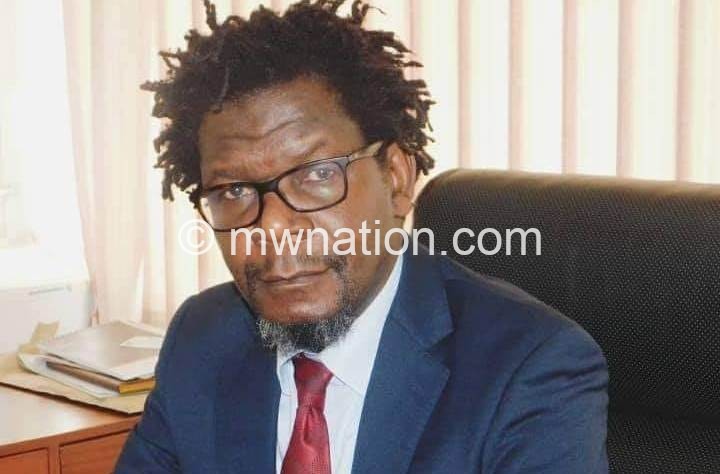Govt launches financial crime, prosecution strategy
Attorney General (AG) Chikosa Silungwe says financial crimes and corruption have been draining public resources and government will no longer treat perpetrators with kid gloves.
He was speaking in Lilongwe on Thursday during the launch of Malawi’s Coordinated Criminal Law Enforcement Strategy that will enable several stakeholders to coordinate in the investigation and prosecution of financial and related crimes.

The stakeholders include the AGs office, Anti-Corruption Bureau (ACB), the Malawi Revenue Authority, Reserve Bank of Malawi (RBM) and the Financial Intelligence Authority (FIA).
Silungwe, who was the guest of honour, warned that the Tonse Alliance administration will seriously combat crimes relating to common assault, financial and related crimes as well as murder that occurred between 2014 and 2020.
He said: “We must not applaud clearly dishonest lifestyles. Every person in this country must embrace a lifestyle audit. Tisiye kuwombera mmanja anyamata apatawuni; anyamata otakata (let us stop clapping hands for crooks who plunder our public resources) when clearly the Consolidated Fund is being used to bankroll delusions of grandeur.”
The AG described the event as an “epochal moment in the history of criminal law enforcement in this country”.
Over the years, Malawi has been known as a country with rising cases of financial crimes.
In an interview on the sidelines of the launch, RBM Governor William Banda said Malawi has lost $30 million through money laundering.

He said the strategy will help the central bank to easily track traffickers as there will be sharing of information among stakeholders on issues of financial crime.
On his part, ACB director of investigations and prosecutions Crispin Khunga lamented that the graft-busting body has been having challenges in investigating financial crimes and corruption matters because it was working in isolition.
He said the strategy will help the bureau to investigate matters in a coordinated fashion with key partners.
But Director of Public Prosecutions Steven Kayuni suggested that the strategy should be complemented by instruments that will enable justice and security to prevail.
He said: “Without putting into place instruments which would foster justice and security, government efforts and intentions as regards fiscal discipline, would be frustrated.”
Kayuni expressed concern that the law in the past was seen merely as a means of regulating human conduct and punishing criminal offenders.
He argued that many people, including public servants, understood the law only within the context of criminal law, prisons, courts and the police.
Said Kayuni: “Since the democratic dispensation, it is now increasingly recognised that the law is not only about controlling crime but that it is also about promoting the social and economic development of our country. In other words, it is also about reducing poverty and is an important developmental tool for good economic management and bringing prosperity to our people.”
A 2019 assessment by the FIA revealed that Malawi lost $7.4 million to illegal foreign exchange externalisation in 11 months.
In October 2020, the United Nations Conference on Trade and Development said Malawi loses five percent of its total wealth annually to illicit financial flows.
This, based on the findings, means that for every K100 generated in the country, K5 is lost to movements of money and assets across borders, which are illegal in source, transfer or use, leaving the country with K95 of its hard-earned money.





